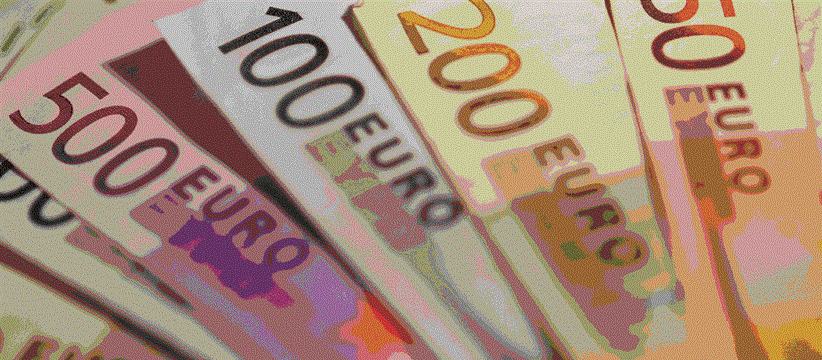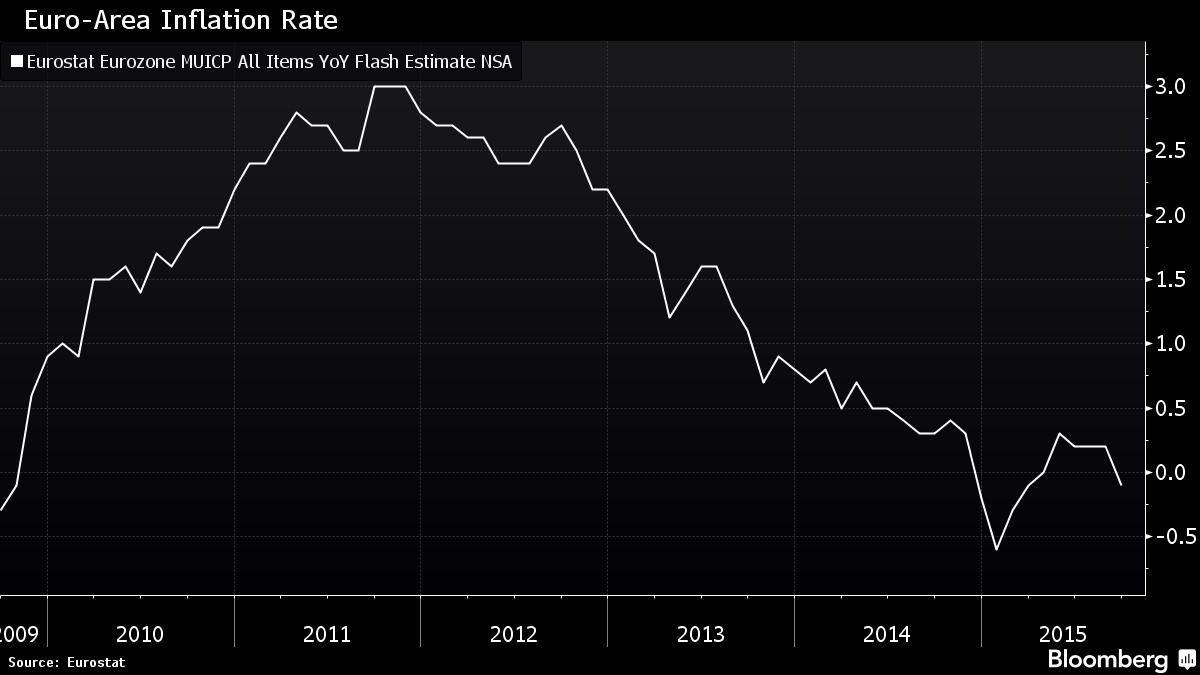
Eurozone inflation turns negative, spurs further talk of ECB stimulus
Data released earlier Wednesday showed that inflation in the euro zone turned negative again in September. This increased pressure on the Europe Central Bank to expand monetary stimulus.
The euro zone consumer price index (CPI)
fell 0.1 percent in September from a year earlier, falling below zero
for the first time since March – when the ECB launched its 1 trillion
euro ($1.12 trillion) asset-purchase program to fuel inflation and
growth.

The drop in the CPI compares with a rise of 0.1 percent in August and analyst expectations in a Reuters poll for a 0 percent reading. Inflation is below the European Central Bank's target of close to but just below 2 percent.
Data “was broadly driven by the energy component,” said Giada Giani, an economist at Citigroup Inc. in London. “There are very little inflationary pressures even aside from the oil-price shock. It should be bottom for the year.”
In this environment, talk of an extension to the ECB's asset-purchase program has risen in recent weeks.
Separate data showed unemployment in the euro zone at 11 percent in August.
Stimulus
- Earlier this month, Goldman Sachs said in a note that the ECB was likely to continue the program through the end of
next year and only finish it in mid-2017. It is currently scheduled to end
in September 2016.
- In a note Wednesday Standard & Poor’s wrote that the ECB will probably extend QE beyond September 2016, “most likely until mid-2018.” The program could reach 2.4 trillion euros, the ratings company said.
- However, it’s too early to discuss probable changes to QE, said ECB Governing Council member Ardo Hansson on Wednesday in Tallin. “A lot depends on how inflation will develop, if it slows or accelerates,” he said. “The QE program was announced in March, for 19 months, and it has only lasted for six months. We’re only at the starting phase.”


